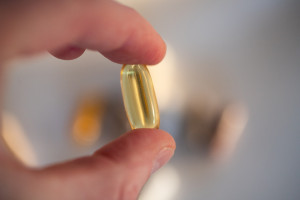Soon you won't be able to buy anything in the store. The EU will regulate what will be on the Polish table

- The planned regulations resulting from the European Green Deal and the "from farm to fork" strategy are to cover, among others, some plastic packaging
- This also applies to products with artificial colours, phosphates and excessive amounts of preservatives, as well as selected bottled drinks with flavourings and sweeteners.
- The reasons for the changes are to protect the environment by reducing the amount of plastic and waste, increase consumer safety by eliminating harmful substances from food and promoting a healthier diet by limiting the consumption of processed foods and artificial additives.
As the portal Warsaw in a Nutshell reminds us, the EU summit is creating regulations that may contribute to significant changes in Poles' grocery shopping. The aim of these regulations is to limit the sale of selected disposable products and processed food products containing specific chemicals. If the proposals are finally adopted, the changes will be felt by both consumers and sellers throughout Poland.
The planned restrictions are part of broader measures by the European Union, including the Farm to Fork strategy and the European Green Deal.
They may concern, among other things, some plastic packaging, especially single-use plastic packaging, used for example to package vegetables and fruit. Food products containing artificial colors, phosphates and excessive amounts of preservatives , as well as some bottled drinks with added flavors and sweeteners, have also been targeted.
Phosphates are commonly used in the production of processed foods. They can be found in, among others:
- in melted cheese,
- meat products,
- smoked fish,
- jelly,
- bread,
- ice cream,
- powdered desserts,
- frozen products.
However, this does not mean that well-known brands will be completely withdrawn from the market, but rather that some of their variants may disappear or their composition may change.
As noted, the reasons for these actions are manifold. Key goals include protecting the environment by reducing the amount of plastic and waste generated, and increasing consumer safety by eliminating substances considered harmful from food.
The regulations also aim to promote healthier diets by reducing the consumption of processed foods and artificial additives. These changes are part of the EU's overall policy of gradually reducing products deemed harmful to both the planet and public health.
The changes could come into effect as early as 2026.If the regulations are adopted by the European Parliament, they could enter into force as early as 2026. However, it should be remembered that some changes could be introduced even earlier, at the national level, for example by amending the Packaging Act or the Public Health Act.
Many manufacturers are already preparing for the upcoming requirements and adapting their production lines, and some companies are already announcing the withdrawal of some products or modification of their recipes to meet future regulations.
For customers, this means, above all, the need to get used to new packaging and the changed composition of some products.
It is also possible that some, often cheaper, products with a high additive content will disappear from the shelves .
Consumers must therefore reckon with a potential increase in the prices of goods that will have to meet new, more stringent quality requirements.
Copyrighted material - reprint rules are specified in the regulations .
Due to election silence, adding comments has been temporarily blocked.
rynekzdrowia









